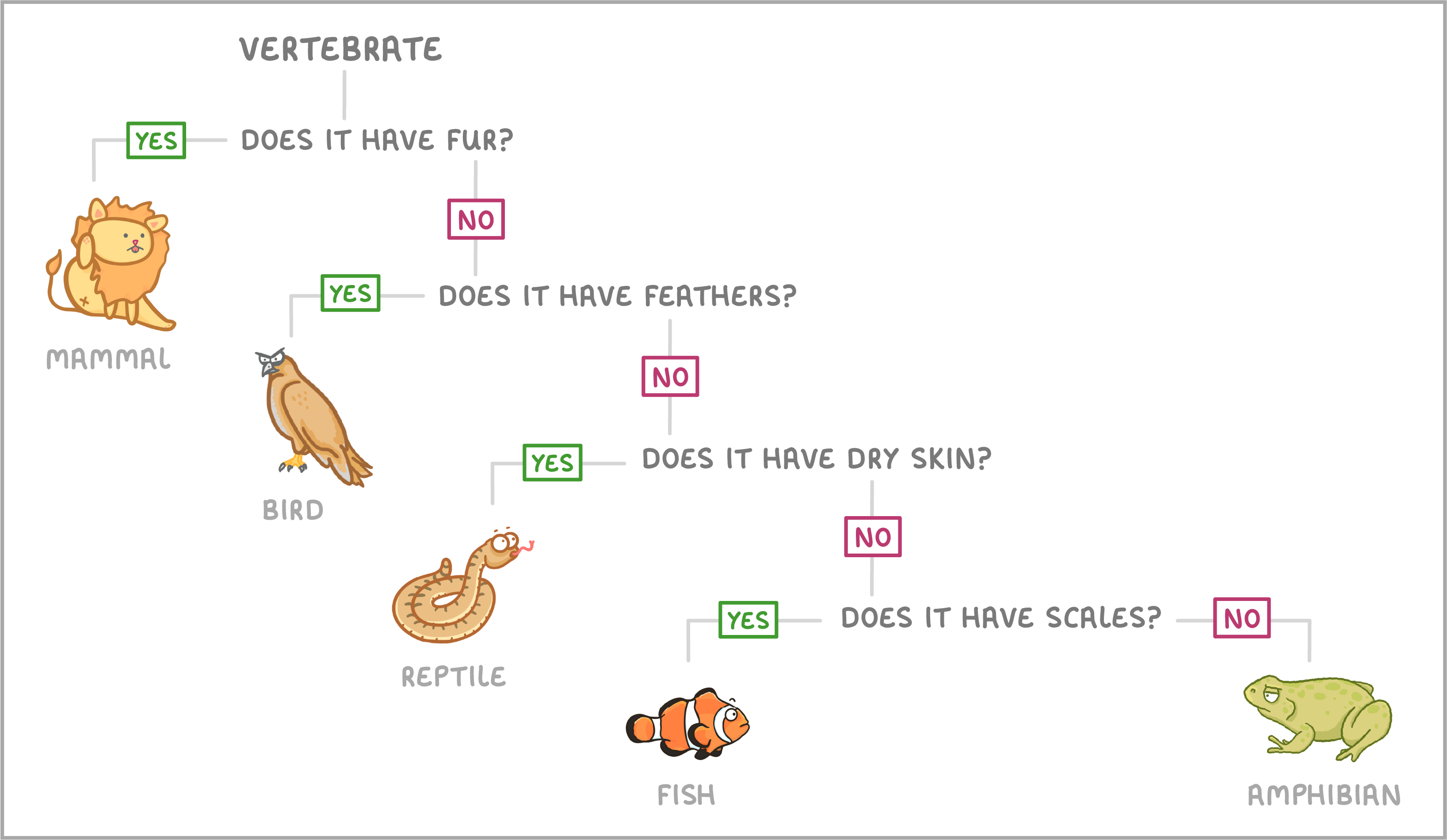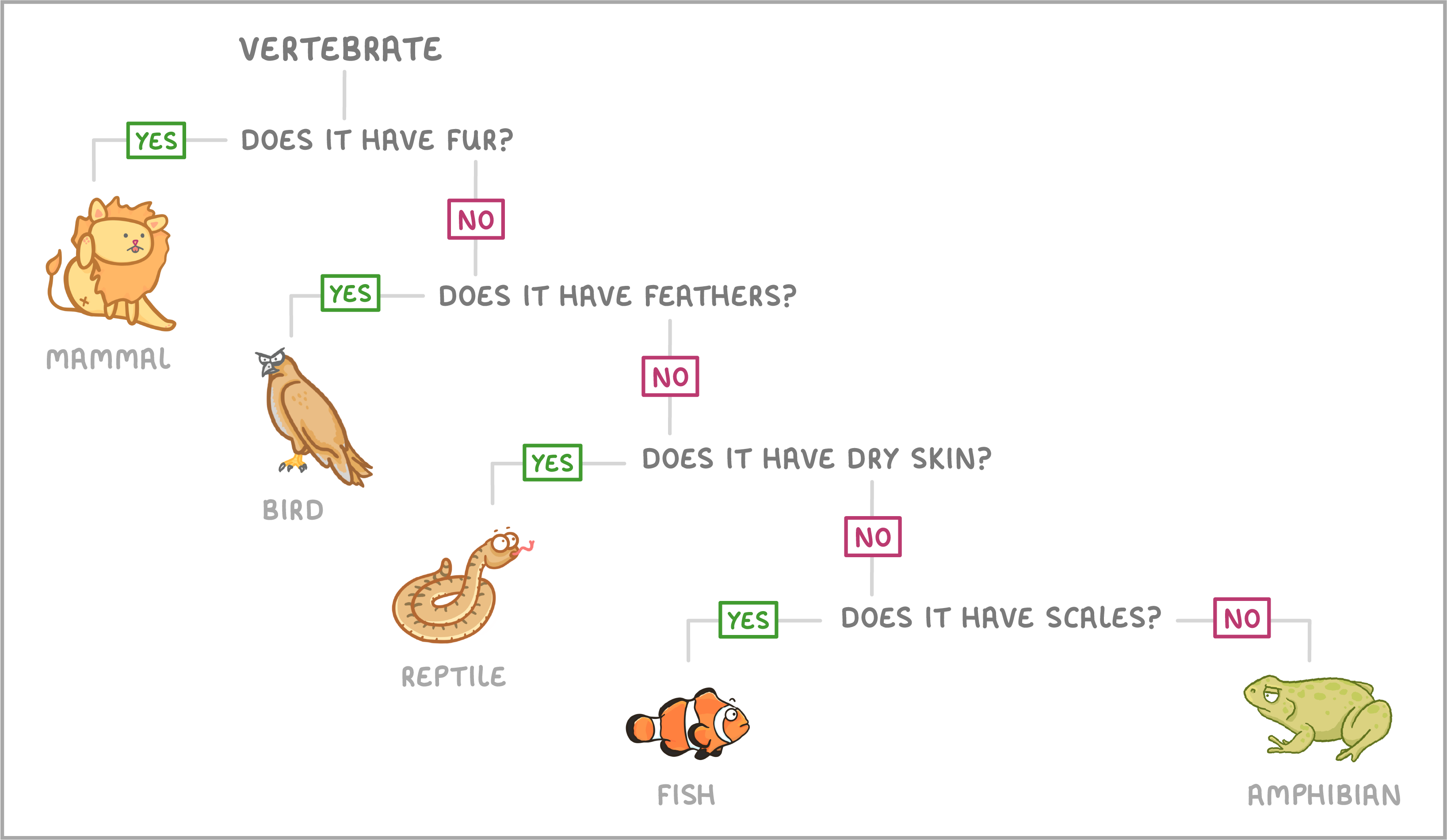Keys (Practical)
This lesson covers:
- How keys can be used to identify species
- What a 'dichotomous key' is
Keys In biology, 'keys' are a method of identification whereby groups of organisms are divided into smaller and smaller groups, based on their shared features. With enough divisions, it's possible to identify a type of organism based on its features. |
For example, in the key below we can distinguish between all the different types of vertebrates by asking ourselves whether the organism we're looking at has fur, feathers, dry skin, and finally scales.  |
Dichotomous keys
Most keys (including the one above), are what we call 'dichotomous keys'. All this means is that we only split each group into two groups each time. The majority of keys are dichotomous, but not all keys are.
If an organism has feathers, what type of organism must it be?

|
If an organism doesn't have dry skin and has scales, what type of organism must it be?

|